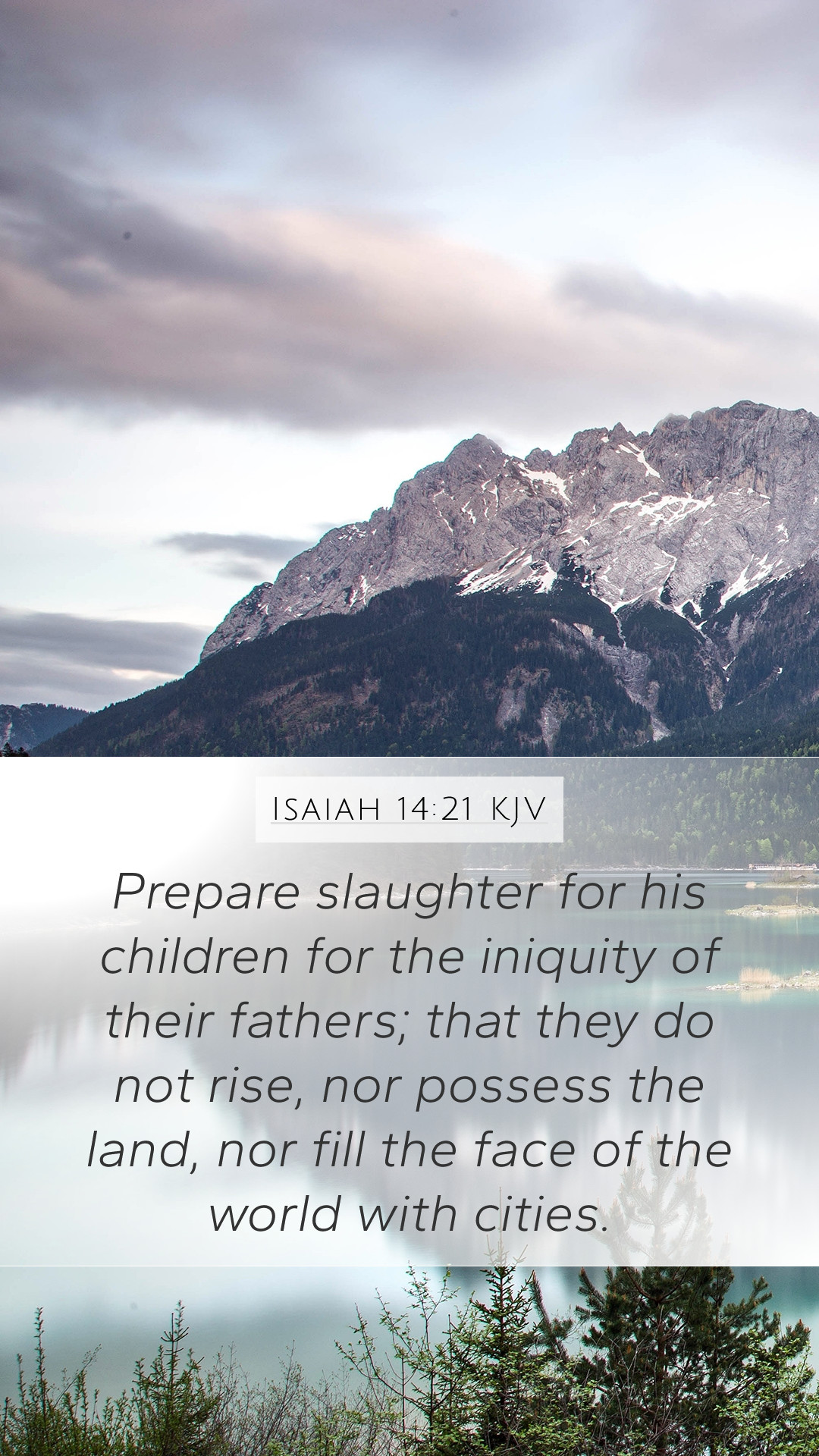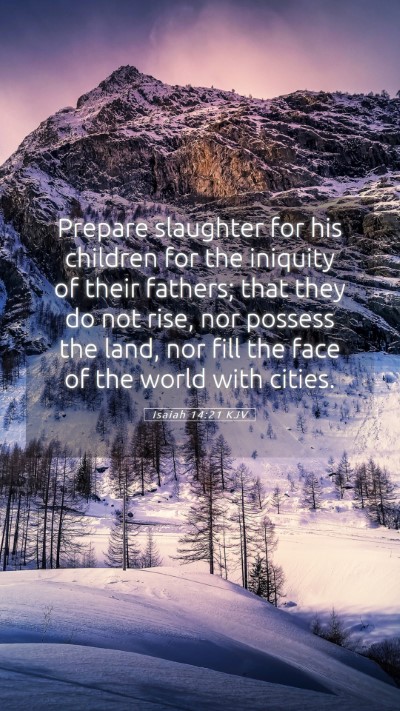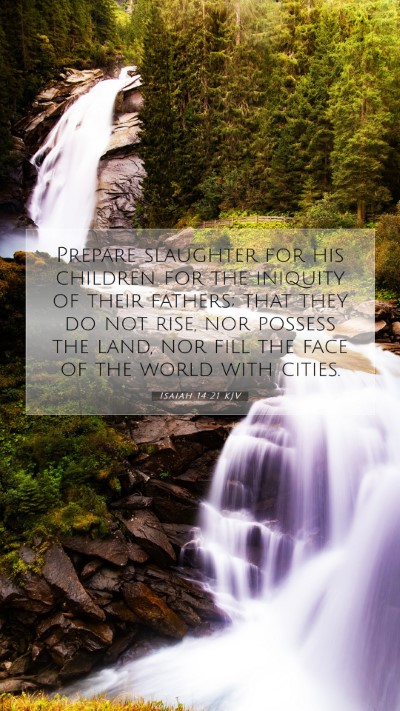Understanding Isaiah 14:21 - A Comprehensive Bible Verse Commentary
In the pursuit of Bible verse meanings, Isaiah 14:21 presents profound insights that resonate through time, providing an understanding of divine justice and judgment. This verse, nestled in a chapter that speaks to the downfall of the king of Babylon, emphasizes the punishment of the ungodly and the consequences of sin. We will draw from the insights of esteemed biblical commentators such as Matthew Henry, Albert Barnes, and Adam Clarke to provide an expansive exploration of this verse.
Text of Isaiah 14:21
"Prepare slaughter for his children for the iniquity of their fathers: that they do not rise, nor possess the land, nor fill the face of the world with cities."
Overall Meaning of the Verse
This verse serves as a proclamation of impending judgment upon the descendants of the Babylonian king. The language used is stark and calls for a preparation of judgment that will ensure the eradication of the legacy of wickedness associated with him.
Insights from Public Domain Commentaries
Matthew Henry's Commentary
Matthew Henry highlights the severity of God's judgment here, pointing out that the destruction of the children is a direct result of their father's iniquities. He notes that this reflects the principle that the sins of parents often bear consequences on their offspring, emphasizing a divine law where judgment is executed through generations.
- Iniquity's Consequence: Henry emphasizes that the iniquities of the fathers are not only remembered but also lead to disaster for the children.
- Divine Justice: The judgment pronounced signifies that God’s justice will not allow such iniquities to perpetuate.
Albert Barnes' Notes on the Bible
Albert Barnes places importance on the comprehensive scope of the punishment, indicating that it is not merely the king who faces divine wrath but his entire lineage. He elaborates on the purpose of this judgment—eradicating the memory of evil from the earth, ensuring that such wickedness does not continue to multiply.
- Erasure of Evil: Barnes proposes that the intent of God’s judgment is to prevent the resurgence of evil practices and idolatry associated with Babylon.
- Covenantal Responsibility: He underscores the biblical idea that families are interconnected in their moral standing before God.
Adam Clarke's Commentary
Adam Clarke emphasizes the prophetic nature of this declaration. He explains that the call for slaughter reflects the prophetic judgment against Babylon that will lead to its utter destruction—both physically and morally. Clarke notes that this illustrates a larger theme of divine retribution that pervades Scriptures.
- Prophetic Judgment: Clarke’s analysis connects this text with the broader scope of prophetic literature, demonstrating God’s active role in global justice.
- Moral and Physical Destruction: He highlights that the destruction encompasses both the moral decay and the physical establishment of Babylon, signifying a holistic divine judgment.
Theological Implications
Isaiah 14:21 carries significant weight in biblical theology, underlining themes such as:
- Generational Accountability: The verse serves as a reminder that the actions of one generation can influence subsequent ones.
- The Nature of Divine Justice: There is a clear representation of God's response to wickedness—a call for justice that spans beyond mere human understanding.
- Hope in Judgment: For the people of Israel, this judgment is also a promise of hope, indicating that God will act against oppressors.
Cross References
To further deepen our understanding, several cross-references illuminate the context of Isaiah 14:21:
- Lamentations 5:7: Addresses the theme of generational blight due to the sins of forefathers.
- Ezekiel 18:2-3: Discusses personal responsibility and the collective burden of iniquity.
- Revelation 18:2: Pertains to the fall of Babylon, showcasing the fulfillment of the judgment Isaiah foretells.
- Proverbs 11:21: "Though hand join in hand, the wicked shall not be unpunished..." - highlighting the inevitability of divine justice.
Conclusion
Isaiah 14:21 is a powerful reminder of the consequences of sin and the sweeping judgment of God against those who perpetuate evil. Through the insightful contributions of Matthew Henry, Albert Barnes, and Adam Clarke, we obtain a multifaceted understanding of this scripture. Whether in personal study, group discussions, or online Bible study contexts, grasping such verses enriches our understanding of Scriptural truths and their relevance in our lives today.
Further Bible Study Resources
For those looking to expand their insights and understanding of Scripture, consider utilizing various Bible study tools and resources. Whether you are engaging in online Bible study, utilizing study guides, or exploring commentary collections, there is a wealth of information that can enhance your grasp of complex biblical passages and themes.


